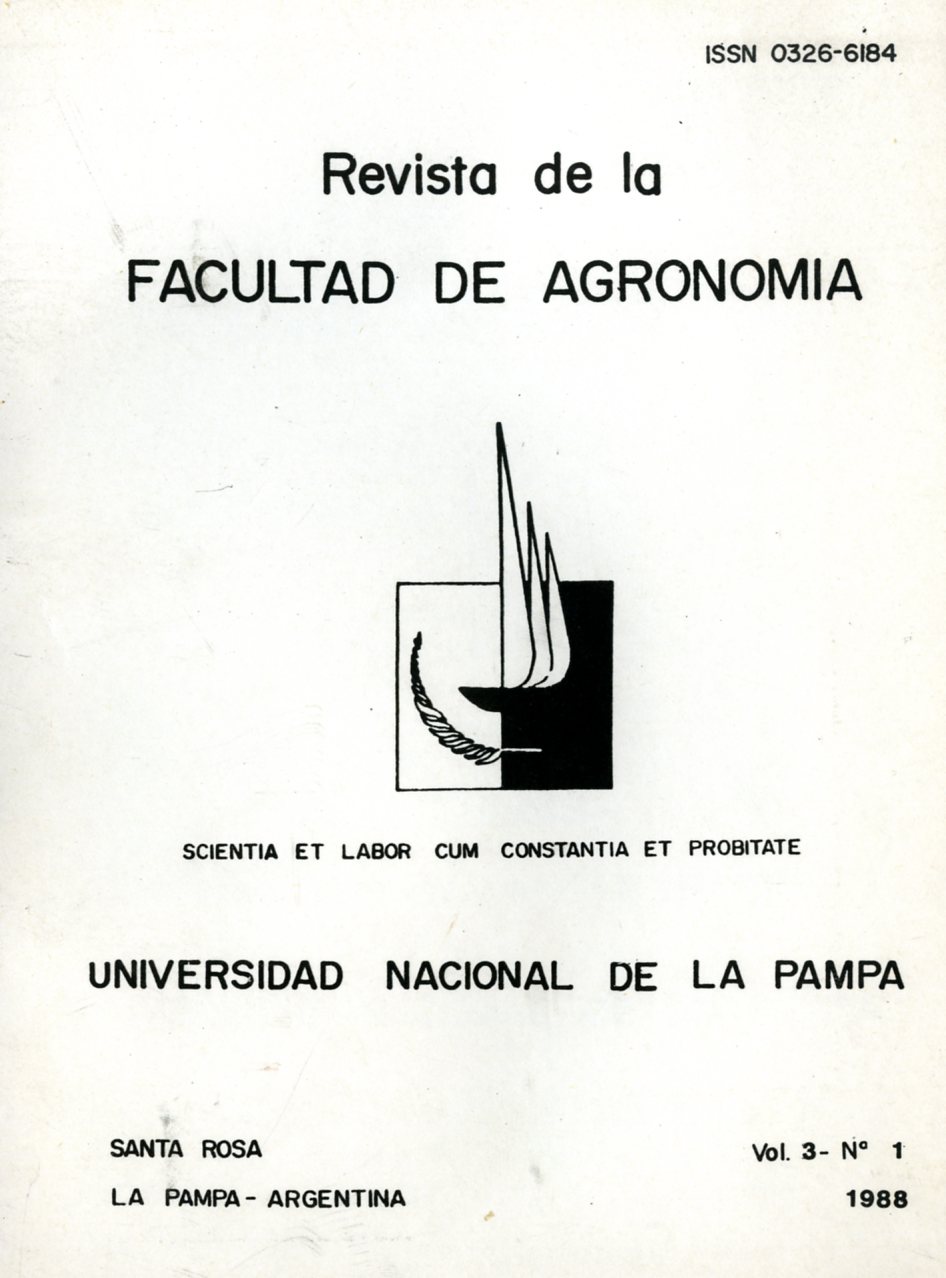Monthly availability of total aerial phytomass and in different compartments of a low grassland in the hilly region of La Pampa
Keywords:
Pastizales naturales, La PampaAbstract
The work was done in a short grassland in the area of La Pampa hills (Toay department), to determine above ground standing crop, total and of the different compartments. Cuts were done monthly in -an area previously grazed, during a whole year's sampling. Total standing crop of aerial biomass was of 173 gDM/m2 of annual average. The most important valuable species were: Poa ligularis, Piptochaetium napoataense, Bothriochloa springfieldii y Rhynchoaia senna. Living biomasa compartment was at its maximum in summer months, with its greatest contribution in January (131 gDM/m2). The standing dead material increased in autumn reaching the maximum value in June (168 gDM/m2); while the litter had its highest value in September (288 gDM/m2) The grassland studied resulted being biseasonal with a period of greater growing by the end of spring-summer and another minor by the middle of autumn. The passage of the living material to the standing dead compartment was quick. It was also quick the convertion to litter in spring, as a consequence of the intensity of the winds.
Downloads
Downloads
Published
Issue
Section
License
La Editorial de la Universidad Nacional de La Pampa (EdUNLPam) exigirá a los/as autores/as la firma del siguiente documento:
La EdUNLPam lleva a cabo la publicación del artículo: (Título del Artículo) en SEMIÁRIDA Rev.Fac.Agron UNLPam ISSN 2362-4337 (impresa) ISSN 2408-4077 (en línea), del cual el/los abajo firmantes son autores de una o más partes. En el mismo acto, el/los autores entregan exclusivamente a la EdUNLPam todos sus derechos protegidos por las leyes de propiedad intelectual que rigen en la Argentina para reproducir, publicar, editar, fijar, comunicar y transmitir públicamente en cualquier formato o medio impreso o electrónico, inclusive internet, el artículo enviado a publicación e incluirlo en índices o bases de datos nacionales e internacionales. A cambio, la EdUNLPam entrega a los autores la autorización para la publicación o reimpresión con ines académicos y educativos en cualquier libro o medio de divulgación, con la sola obligación de citar el artículo original publicado en la EdUNLPam. Cada autor acuerda en que el material provisto a la EdUNLPam es un trabajo original, que no ha sido impreso o publicado en cualquier otro medio con anterioridad y que no vulnera derechos de terceros. El Primer autor tendrá la posibilidad de leer y corregir el artículo ya editado como “prueba de galera”, pero si el autor no devolviera esas correcciones de la prueba de galera dentro del tiempo especificado, el proceso de producción y publicación podrá proseguir sin la aprobación del autor. El/los autor/es no recibirán compensación monetaria de la EdUNLPam por el uso del material contenido en este artículo y asumen la responsabilidad de las opiniones vertidas en él.






.png)



22.png)



.jpg)




.jpg)
